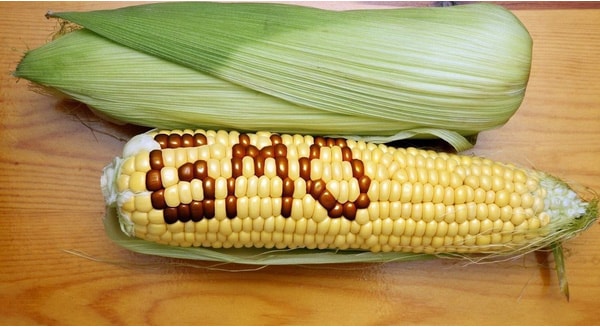107 Nobel Prize-winning scholars call on the world to stop opposing genetically modified crops
Nobel Prize-winning scholars have signed an open letter calling on Greenpeace to change its stance against genetically modified foods.

Accordingly, the views of more than 100 scholars who won this award believe that the Greenpeace organization should stop its campaign to prevent the development of a new genetically modified rice strain called Golden Rice.
Because according to research by scientists (including Nobel Prize winners), this product can combat Vitamin A deficiency and limit the possibility of blindness or death in children.
The letter reads: “We call on Greenpeace to quickly reassess the experiences of farmers and consumers around the world with genetically modified crops and foods. We request that this organization stop its campaign against genetically modified crops (GMOs) in general and Golden Rice in particular. Currently, the list of signatures in the letter has 107 Nobel Prize-winning scholars, accounting for more than 1/3 of the number of winners of the prestigious award who are still alive. The World Health Organization (WHO) estimates that around 250 million people worldwide suffer from Vitamin A deficiency, with 40% of them being children under 5 in developing countries. According to UNICEF, 1-2 million deaths are caused by this immune-weakening condition each year, putting children and infants at great risk. Vitamin A deficiency is also the leading cause of blindness in children, affecting 250,000-500,000 people each year. Half of these children die within 12 months of losing their sight. |
According to The Washington Post, the campaign against Greenpeace's position was initiated by Richard Roberts, Scientific Director of the New England Biolabs Research Institute, and Phillip Sharp, winner of the Nobel Prize in Physiology or Medicine for his discovery of the intron gene sequence.
Sharing with the press, Roberts affirmed: “We are scientists. We understand the logic of science. Scientific organizations and authorities around the world have repeatedly affirmed the safety of crops and foods that have been intervened by biotechnology. In other words, it is safer than any other farming method.".
Sharing the same view, cell biologist Randy Schekman of the University of California at Berkeley (Nobel Prize in Physiology or Medicine 2013) said that to date, there have been no confirmed cases of adverse health effects from the consumption of genetically modified products in humans or animals. Moreover, crops help protect the environment, significantly reduce the amount of pesticides needed, and contribute to global biodiversity.
Mr. Randy Schekman also expressed surprise that Greenpeace opposes the view on genetically modified technology while it has always been very supportive of science when talking about climate change or vaccination to prevent diseases for humans.
"This is a rice variety that has the potential to reduce the risk of blindness or death caused by Vitamin A deficiency, a condition that is very common among poor people in Africa and Southeast Asia,"The 2013 Nobel Prize winner in Physiology or Medicine asserted.

Although scientists have reacted quite strongly to the campaign against genetically modified crops, Greenpeace has yet to give an official response to this open letter.
Greenpeace’s protests, with their global reach, have been the most influential in the campaign to ban golden rice. The organization claims that the introduction of genetically modified crops into the environment is a form of “genetic pollution.”
This never-ending debate between mainstream scientists and environmental activists is nothing new. Before, many heated debates or campaigns against each other's views had made waves in the media.
On June 30, in Manila (Philippines), Ms. Wilhelmina Pelegrina, head of Greenpeace Southeast Asia, said that research on genetically modified crops, especially golden rice, is like "throwing money out the window."
Although Greenpeace is not the only organization opposing genetically modified crops, it is undeniable that there is widespread development of biological crop varieties today.
Genetically modified crops began to become popular in the mid-1990s. Today, most corn, soybeans, and cotton have been modified to be resistant to pests, diseases, or herbicides. These crops exist and are widely used on every continent.
According to Cafebiz
